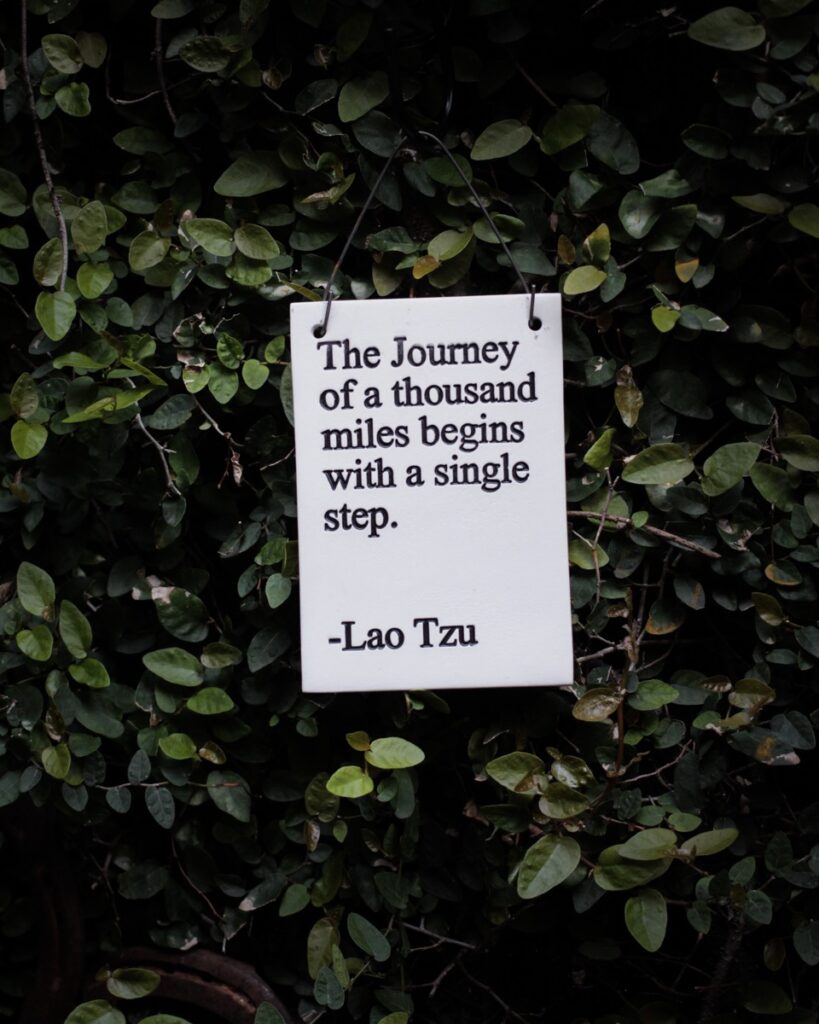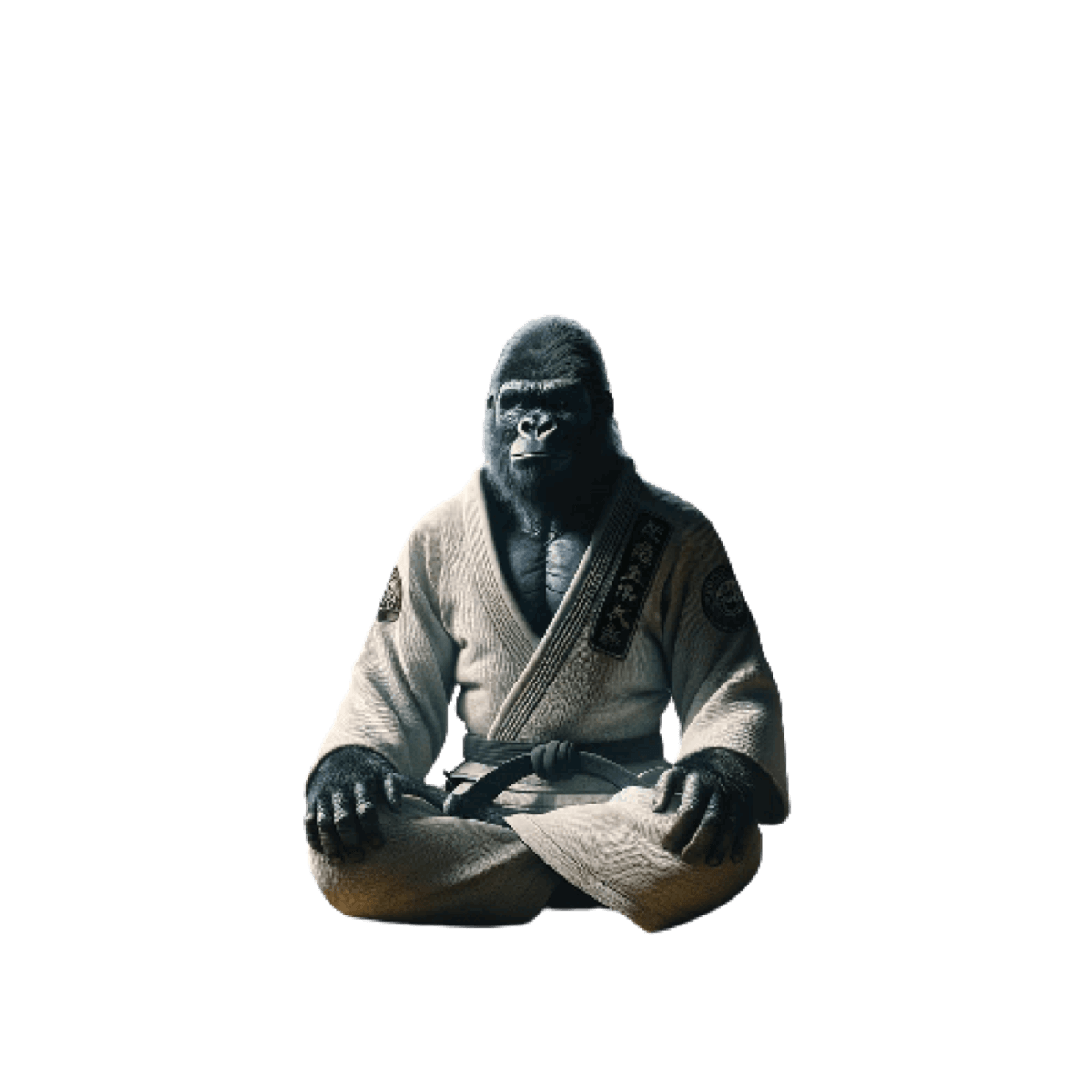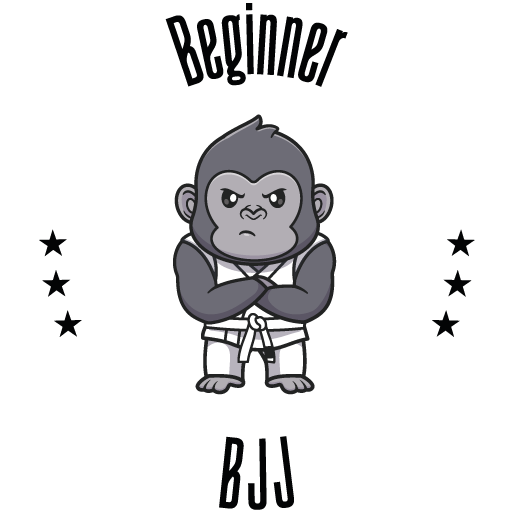Menu
Close
BJJ mindset and strategy
Learn how to develop strategic thinking, handle losses, and maintain a positive mindset to improve your BJJ journey.
Welcome to the Brazilian Jiu-Jitsu (BJJ) journey, where not only your physical capabilities are challenged, but your mental prowess is equally tested. As a beginner, understanding the significance of the right mindset and strategic approach in BJJ is crucial to your progression and growth in the art.
Like other martial arts, BJJ is much more than a collection of moves and techniques; it’s a mental game that requires strategic thinking and resilience. The key to success is physical strength or flexibility and the development and application of mental skills like focus, patience, determination, and tactical planning.
A well-rounded BJJ strategy helps you make effective decisions during sparring and competitions, playing a pivotal role in your performance. It allows you to adapt to different opponents and situations, foreseeing moves and planning your actions accordingly.
However, strategy alone is not enough. Cultivating the right mindset is equally important. In BJJ, you will face challenges, losses, and setbacks. These are opportunities for learning and growth if approached with a positive and resilient mindset. A winning mindset in BJJ sees challenges as opportunities and is committed to continuous learning and improvement.
This guide will explore these critical elements—mindset and strategy in BJJ—and offer practical advice and insights to help you, as a beginner, navigate your BJJ journey with confidence and purpose. Let’s dive in!

Developing a BJJ mindset
The mental game in Brazilian Jiu-Jitsu (BJJ) is often overlooked for beginners, but it’s one of the keys to success in the sport. It’s about mental toughness, focus, resilience, and emotional control. With a solid mental game, you can better handle the pressures of training, competition, and defeat, turning them into fuel for growth and progress.
A robust mental game can also make your training more effective. Being mentally present and focused during each session, you can better understand techniques, learn from your mistakes, and adapt your strategies. Remember, your mind is one of your most potent tools in BJJ.
Patience and persistence in BJJ
In BJJ, patience and persistence go hand in hand. BJJ is a complex martial art; mastering it takes time, effort, and a lot of practice. Progress can often be slow and non-linear, frustrating for beginners.
However, it’s essential to stay patient and persistent. Understand that every practitioner has been where you are, no matter how skilled. The key is to keep going, stay consistent in your training, and never let setbacks deter you from your BJJ journey. Each training session, each roll, each defeat, and each victory takes you one step closer to your goals.
Growth mindset and continuous learning in BJJ
A growth mindset believes you can develop and improve through hard work and persistence. In BJJ, this mindset is particularly beneficial. It encourages you to embrace challenges, learn from mistakes, and view effort as a path to mastery.
Having a growth mindset in BJJ means seeing every training session as an opportunity to learn and improve, not just to win. It means valuing feedback, learning from losses, and celebrating small victories and progress. Continuous learning should be your aim – regardless of your belt level, there’s always something new to learn in BJJ.
Remember, the journey in BJJ is a marathon, not a sprint. Develop your mental game, be patient and persistent, and always stay open to learning. These are the keys to a successful and fulfilling BJJ journey.
Strategies for BJJ sparring
Understanding the objective of sparring
Sparring, also known as “rolling” in the BJJ community, is crucial to Brazilian Jiu-Jitsu training. It’s where you put the techniques you learn into practice in a controlled, resistance-based setting.
For beginners, it’s essential to understand that the primary objective of sparring isn’t just to “win.” It’s a learning tool designed to improve your techniques, strategies, and understanding of BJJ.
Sparring allows you to identify the areas you need to work on, apply techniques against resisting opponents, and understand how to handle different situations on the mat. It’s not just about submission but also control, defence, transitions, and problem-solving under pressure.
Developing your game plan
Having a game plan in BJJ sparring is essential. A game plan is your strategic blueprint, outlining your preferred techniques and positions and how you aim to execute them during a roll.
For beginners, your game plan might be as simple as working on a specific guard pass, attempting a particular sweep, or maintaining top control.
As you progress, your game plan will evolve, becoming more complex and adaptable. Developing a game plan and attempting to implement it in sparring can help improve your understanding of techniques, combinations, and transitions. It can also make your rolling more purposeful and focused.
Adapting to different opponents
One of the most significant aspects of BJJ is its variety. You’ll spar against opponents of different sizes, strengths, skill levels, and styles. This diversity requires you to be adaptable in your strategies and techniques.
Adapting to different opponents is an important skill to develop. It involves understanding and exploiting your strengths, recognizing and mitigating your weaknesses, and adjusting your strategies depending on your opponent’s attributes and style. It’s about being fluid and versatile, able to switch your game plan as needed.
Remember, the goal in BJJ sparring isn’t just about winning; it’s about growing, learning, and improving. Develop your game plan, be adaptable, and always see sparring as a learning opportunity.
Dealing with losses in BJJ
Learning from losses
In Brazilian Jiu-Jitsu, losses are inevitable. Whether you’re a beginner just starting or an experienced practitioner, you will face defeats on your journey. However, losses are not necessarily negative experiences. They are powerful learning opportunities that can help you improve your BJJ skills and mindset.
Every loss provides valuable feedback and insight into your game. You can identify gaps in your technique, strategy, or mindset by analysing what went wrong during a sparring session or competition. You might discover a weakness in your guard that needs addressing, or you might find that your game plan needs more adaptability.
Reframing losses as learning experiences can help you develop a more positive and growth-oriented mindset in BJJ. Instead of seeing a loss as a failure, view it as a stepping stone towards improvement and success.
Bouncing back after a loss
Experiencing a loss can be challenging, but bouncing back with renewed focus and determination is essential. Resilience is a critical attribute in BJJ, and the ability to recover from setbacks will significantly influence your progression.
After a loss:
- Take some time to reflect on the experience.
- Identify the lessons, work on the areas that need improvement, but then let go of the defeat.
- Refrain from dwelling on the past; focus on your future growth.
Returning to training with a positive mindset, ready to apply the lessons learned, is essential.
Encourage yourself to embrace the journey of BJJ, with its ups and downs, wins and losses. The path to a black belt isn’t linear, and every practitioner, regardless of rank, learns from their defeats. Remember, in BJJ, you either win, or you learn.
Building a positive mindset in BJJ
The role of positivity in training and competitions
Maintaining a positive mindset plays an integral role in the journey of a Brazilian Jiu-Jitsu (BJJ) student. Training sessions can be physically and mentally demanding. There will be days when techniques feel impossible to grasp, or you seem stuck on a plateau. In such times, a positive mindset can be your most powerful tool.
Positivity encourages persistence, resilience, and a more vital determination to improve. It allows you to view challenges as growth opportunities rather than obstacles. A positive mindset can boost your confidence, improve your focus, and enhance your performance when preparing for competitions.
Positivity also fosters a better training environment. It encourages respect and camaraderie amongst teammates, which is crucial for a thriving BJJ community.

Overcoming negative self-talk
Negative self-talk, the critical inner voice undermining our abilities, can hinder progress in BJJ. It can make you doubt your skills, reduce confidence, and instil fear of making mistakes. To build a positive mindset, it’s crucial to overcome negative self-talk.
Start by becoming aware of your inner dialogue. Recognize when you are being overly critical or pessimistic about your BJJ skills. Challenge these thoughts and replace them with positive affirmations. Instead of saying, “I’m not good at this technique,” say, “I’m still learning and improving at this technique.”
Visualize success. Before training or competition, imagine yourself performing techniques flawlessly or winning matches. Visualization can enhance your self-belief and mitigate negative thoughts.
Remember, overcoming negative self-talk takes time and practice.
However, persistently striving for positivity can significantly improve your BJJ journey’s mental aspect.

FAQs about mindset and strategy in BJJ
Why is mindset necessary in BJJ?
Mindset influences how we approach learning, handle challenges, and react to wins and losses in BJJ. A positive mindset fosters resilience, patience, and a continuous learning attitude, essential qualities for growth in BJJ.
How can I handle losses better in BJJ?
It’s essential to view losses as learning opportunities in BJJ. Analyze your matches to understand what led to the loss and identify areas for improvement. Stay patient, maintain a positive mindset, and remember that progress in BJJ often involves overcoming challenges.
How can I improve my strategy in BJJ sparring?
Improving your BJJ sparring strategy involves understanding the objectives of sparring, developing a game plan, and learning to adapt to different opponents. It also includes studying techniques, analyzing your strengths and weaknesses, and seeking advice from coaches and more experienced practitioners.
The mental aspect of Brazilian Jiu-Jitsu, encompassing mindset and strategy, is as crucial as the physical component. A positive mindset fosters resilience, patience, and an attitude of continuous learning, while a well-thought-out strategy can significantly enhance your performance in training and competitions.
As a beginner in BJJ, understanding and applying these principles can significantly impact your journey in this art.
Whether you are gearing up for your first class or preparing for a competition, remember to stay positive, remain patient, and keep learning. Explore our other resources or subscribe to our newsletter for more tips on mindset and strategy in BJJ. Join our community to share your experiences and learn from fellow BJJ enthusiasts.


